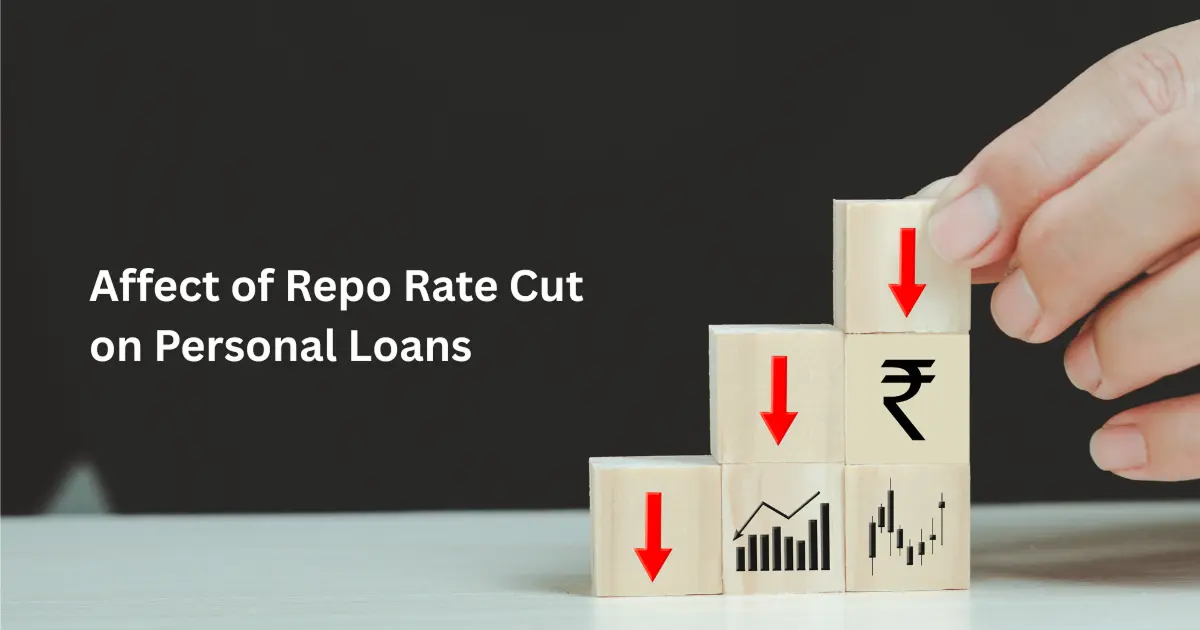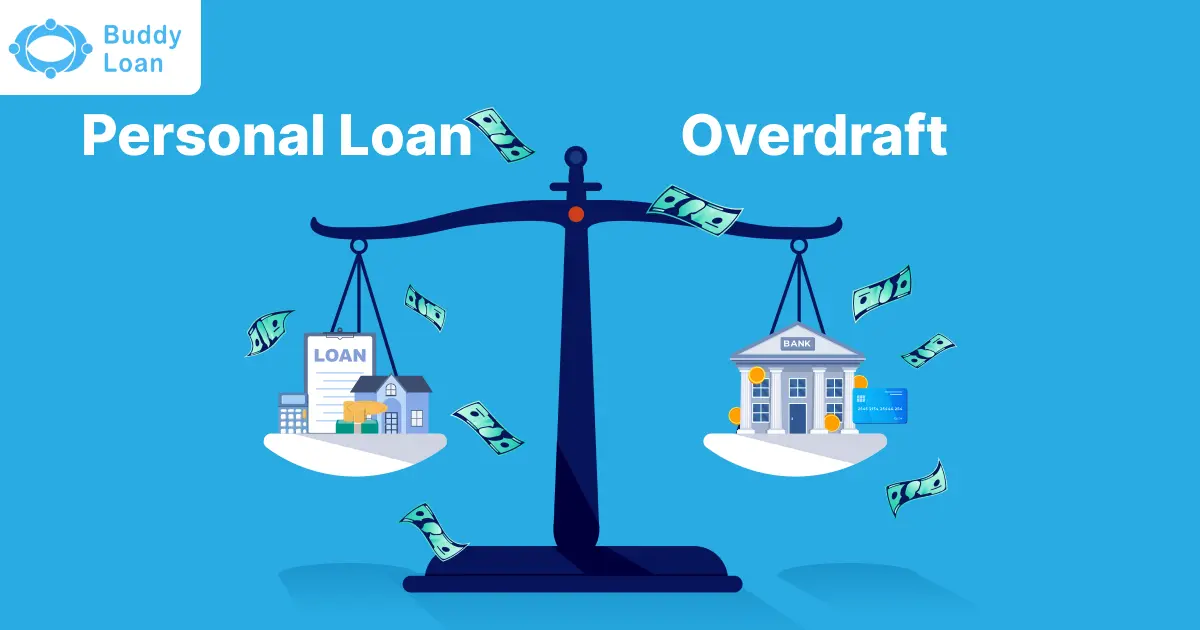Lenders usually offer a fixed repayment schedule for borrowers, meaning you need to pay a fixed EMI every month. But few lenders offer flexible personal loan repayment plans. That is why it’s always better to check and calculate loan repayment plans before you make the final decision. If you need help managing your personal loan repayment, check out the tips below!
Introduction
The rise of personal loans in the 21st century has been a roller coaster ride. The easiness and quickness of the availability of loans have made personal loans a popular way of getting quick funds.
Recently, a personal loan has been available through all the leading banks and NBFCs, and most people apply for them during their financial crises. From filling up the application to processing and getting the fund, availing a personal loan is reasonably straightforward. Personal loans are unsecured loans that do not require any collateral or mortgage. Whether you plan to renovate your house, purchase a four-wheeler, or invest in education abroad, a quick personal loan will fulfill all your dreams. The thought part begins when it comes to personal loan repayment. Like any other loan, you can pay it off in monthly installments.
But sometimes, repaying the loan on time can be troublesome, especially when new to loans. But do you know that a personal loan can be one of the best ways to relieve financial stress and burdens when you manage to apply? Besides, when you manage personal loan repayment responsibly, it improves your credit score as well.
When you borrow a loan amount of your choice to meet your financial requirements, you should repay it over time, along with interest. When you choose Buddy Loan, you can apply for a loan amount from 10000 to 15 Lakhs per your needs. The tenure varies from 12 months to 5 years, starting at 11.99% p.a. with a minimum salary of 17,000 -18,000 with Buddy Loan; you can always choose the flexible tenure plans as per your convenience and repay every month for the duration.
What is Personal Loan Repayment?
When someone uses credit of any kind. They must pay back the money within a predetermined time frame. Borrowers are required to pay additional fees on top of the unpaid sum if this is not done. There are several loan payment options depending on the credit kind`.
Delay or non-repayment of a loan, however, is a sign of poor debt management, which can also put borrowers in debt traps.
This is why it’s critical to have a thorough understanding of loan repayments.
What Are Some Smart Tips to Manage Your Loan Efficiently?
Before you go for a personal loan, checking your finances is essential as it plays a vital role in managing your loan repayment. Here are a few tips for you to see and follow!
Know Your Requirements
Banks and other financial institutions use various marketing tactics and offer attractive deals to attract customers and convince them to apply for a loan. But when you are really in need, go for those deals. Personal loans are outstanding debt, especially during emergencies; you can use them for big purchases, credit card consolidation, fulfill wedding or vacation expenses, and many more. It is always best to know your requirements and plan accordingly and once you have received the amount, use it wisely. Additionally, if you have a separate account for an appropriate estimate, you can ensure that you keep a record of every investment, which will smoothly manage your loan settlements.
Also Read: The Right Time To Take Personal Loan
Plan Your Budget
Applying for a loan with knowing your monthly expenses can avoid unnecessary problems and impact your daily expenditure. So, always plan your costs and make sure you have enough funds to pay your EMIs on time. Do proper research before taking a loan so you don’t feel trapped in debt.
Repayment on Time
Make loan repayment a priority. Once you receive the fund, you must repay the EMIs on time. A default in personal loan payments can affect your credit score adversely. Timely payments improve your financial health and enhance your credit history. Sometimes, late repayment allows you to pay extra fees or penalties. Many lenders offer auto-debit from your account on a particular date and time. You can go for this option or set a loan reminder for every month.
Consolidating/ Merging all The Loans
Are you managing several credit card payments or small/big loans at a time? You can opt for a second loan to pay off the existing loans but ensure the interest rate is lower than the current interest rates. This will help you save more while managing the repayment procedure properly. Debt consolidation protects you from a debt trap and helps improve your credit history.
Pay and Avoid any Outstanding EMIs
Late payments add to excessive fines and affect your credit score. Recurring extra fines and payments throw you off your loan repayment plan. When you know there might be extra costs or even during an emergency; it is advisable to calculate loan repayment for better guidance for paying your debt. Nobody can predict the situations that come in one’s life, and if there are times when it becomes difficult to repay loans, you can ask the lender to decrease your interest rate or ask for a lower EMI. You can always calculate loan repayment schedules and prices through a loan calculator. You can also check and compare different personal loan interest rates of several other banks and find the one that best suits your needs.
Also Read: Buddy Loan: The Best Lender for an Instant Personal Loan
Reducing Tenure
If you expect a raised income and you have a long tenure for a loan, you can ask for reducing the tenor each time your income increases. This might increase your EMI, but it will reduce the overall interest rate and help you slowly repay your loan.
Avoid Getting any New Loan
Credit cards can be great savers in times of emergencies. But you are getting a credit card with the intention of personal loan repayment, often piling up more debt. But instead of getting a new loan, you can look for other measures for loan repayment, like finding another source of income, reducing your expenses and finding ground and creating a loan repayment schedule.
Generating New Income
For unknown reasons, sometimes you must catch up in paying off debt, even with an outstanding loan repayment schedule. Your income might not be enough for your expenses and debt; at this time, find another way to generate more income so you can get ahead in your finances.
Make A Separate Budget For EMI Repayment
It would help if you make a separate budget for EMI repayment and ensure the availability of enough balance in the bank account. Prepare a schedule to deposit the EMI amount in the bank account used for loan repayment. Deposit the required amount in the bank account once you get your salary from your employer. This will help you repay all EMIs at the right time every month and learn the art of living with a limited remaining amount.
Being aware and knowing about how your credit is doing is an important factor in managing a good credit score. You can use many EMI calculators for figuring out the right interest rate and amount. Read the article below for how to check EMI and make informed decisions.
What is an EMI Calculator?
An EMI calculator helps you calculate your EMI amount and compares EMI from different loans and tenures. The EMI calculator is used to determine your monthly loan EMI payments. The EMI will be displayed as soon as the borrower enters the loan’s variables, such as the principal amount, term, and interest rate. You may quickly determine your Loan’s EMI by utilizing the online EMI calculator, which makes the process simple. There are free, 24/7 online loan EMI calculators accessible! Therefore, you are free to calculate or compare different Loan EMIs as much as you choose.
How To Calculate Your EMI?
Here’s how to calculate your EMI-
The mathematical formula-
EMI = P x r x (1+r)n/ ((1+r)n-1)
Where,
P = loan amount/Principal amount
r = Rate of Interest
n = Loan Tenure (No of months)
An Example-
For a 50000 loan repayment-
If your interest is 13%p.a (0.0108333), for a tenure of 2 years.
EMI = 50000 x 0.0108333 x (1+0.0108333) 24 / ((1+0.0108333) 24 – 1) = 2377.09.
Note:
The EMI calculation formula is generic and works with all loans. The loan amount, loan term, and interest rate are the three main factors that affect how much an EMI will vary. The Loan’s EMI payment is directly inversely correlated with the loan’s principal and interest rate, meaning that when these variables rise, so do the EMI payments. Although the amount of paid interest rises with longer tenures, the EMI payments fall if the loan is repaid over a longer time. This is because the EMI is inversely related to the tenure of the loan.
Also Read: A Joint Personal Loan for a Stress-Free EMI Payment
Why Should You Pay Your EMI On Time?
A misconception around credit scores is that it is often only to get a banking product. Surprisingly, it is equally essential for other less predictable requirements, for instance, getting an employment offer or renting something.
Even if people are aware of the concept of the credit rating system, credit, in the end, is a three-digit number that assesses your likelihood of repaying the loan.
To understand the risk of bad debts, it makes use of information from credit reports. Your credit history is fully described in a credit report. CIBIL TransUnion, Equifax, Experian, and High Mark are a few other Indian businesses that perform a similar service.
A good credit report will help you establish yourself with premier financial institutions for better banking services. In future, it would also help you be well-rated for any future banking requirements.
Note:
Before obtaining a loan or signing the agreement, read all the lender’s terms and conditions to avoid future hassles. Be sure you avoid falling for any extra charges while repaying the loan. Identify your expenses that are unnecessary and can be cut down. In this way, you can save more and boost your financial condition. But only take a new loan once you pay off the existing one. Otherwise, it can overburden your finances.
Also Read: How to Close Personal Loan Account In 3 Easy Ways!
Is Loan Settlement a Better Way to Repay Your Loan?
Unforeseen circumstances may happen in any person’s life at any point in time. It may happen that you can’t repay your loans in time; it could be due to a financial crisis, an accident, or a job loss. At a time like this, you can opt for Loan Settlement.
When you apply for a personal loan settlement, the lender will waive the due amount on your loan and discontinue your services with them.
Taking a settlement does not mean it’s a safe, reasonable option. The Loan settlement effect on credit score can be detrimental.
Learn About Loan Settlement
Knowing your ability to repay a loan is crucial when applying for one. Loan settlement is one of your options if you are unable to repay your loan because of unforeseen circumstances.
The adverse effects on your credit score are just one of the reasons why this is not a suggested alternative. This method of repayment should not be considered a viable option and only be considered when you have no other way to repay your loans.
You can read through to learn more about loan settlement and also know about the loan settlement effect on credit score.
Loan Settlement vs Closing the Loan
Many mistake loan settlements with closing the loan, but these two things are entirely different. When you close a loan, you pay with interest, indicating to your lender that you are a responsible, smart borrower.
Unlike loan settlement, you do not make a full loan repayment; your loan is waived due to unforeseen circumstances, creating the impression that you need to be a responsible borrower.
How Does Loan Settlement Work?
- The lender verifies and confirms that the borrower has defaulted due to genuine reasons beyond their control.
- The confirmation is then considered, and the borrower is offered a one-time settlement option.
- After assessing the borrower’s repayment capacity and the situation, an amount is decided and settled, writing off the interest and penalties (a one-time settlement option).
- Once the settlement is done, the lender writes off the loan and reports it as ‘settled; to the credit bureaus.
Loan Settlements Impact on Credit Score
All loans that an individual takes are reported to the credit bureaus. They record all aspects of your loan, from repayments to if you are getting a loan settlement, which the next financial unit could access.
Getting a loan settlement can reduce your credit score drastically by almost 75-100 points. This reduction will make it difficult for you to apply for future loans.
Should I opt For a Loan Settlement?
If you cannot repay your loan on time, choosing a loan settlement may seem easy, but remember that this will negatively impact your credit score. Furthermore, you might not be able to get loans in the future at a reasonable price. Only if you have no other choice should you settle your loan. Obtaining affordable loans at an amount you are confident of repaying is one way to avoid this unpleasant scenario.
What Are The Alternatives to Settlement?
Reading this article would give you an idea of what happens after a loan settlement, and it should be understood that you should avoid it at all costs.
Here are some tips and alternatives to avoid a loan settlement-
Borrow concerning your requirement-
While taking a loan, you should be careful and assess your repayment capacity and only borrow what is needed. When you are aware and do things strategically, it can help avoid the burden of repayment.
Life can be unpredictable;
If you are facing difficulties trying to repay loans, talk to your lender about revising your loan terms and conditions rather than rushing to do a loan settlement. Talk to your lender about your situation and ask for an appropriate solution that would not hinder your credit score.
Using investments as assets to repay loans-
Always have a safety net, designating investments to various areas like deposits, stocks, bonds, and gold. You can use it if you need money and help repay your loan.
Need help managing your finances and facing more difficulties? Get in touch with financial consultants or experts immediately and look for the right and credible solution. Personal loans are designed to fulfill your requirements, and repaying them on time will make your financial journey smooth and stress-free. Lenders will offer customized loan solutions depending on your needs and personal loan eligibility. Each Offer comes with a different repayment schedule, and you can select the plan per your ease and comfort and manage your financial cycle properly.
An End Note-
Recently, Personal loan has been available through all the leading banks and NBFCs, and most people apply for them during their financial crises. Personal loans are unsecured loans that do not require any collateral or mortgage. Whether you plan to renovate your house, purchase a four-wheeler, or invest in education abroad, a quick personal loan will fulfill all your dreams. The tough part begins when it comes to personal loan repayment. Like any other loan, you can pay it off in monthly installments.
Besides, when you manage personal loan repayment responsibly, it improves your credit score as well.
Lenders usually offer a fixed repayment schedule for borrowers, meaning you need to pay a fixed EMI every month. But few lenders offer flexible personal loan repayment plans. That is why it’s always better to check all the repayment plans before you make the final decision. If you need help managing your loan repayment, check out our other blogs at Buddy Loan!
Download Personal Loan App
Get a loan instantly! Best Personal Loan App for your needs!!
Looking for an instant loan? Buddy Loan helps you get an instant loan from the best verified lenders. Download the Buddy Loan App from the Play Store or App Store and apply for a loan now!
Having any queries? Do reach us at info@buddyloan.com




